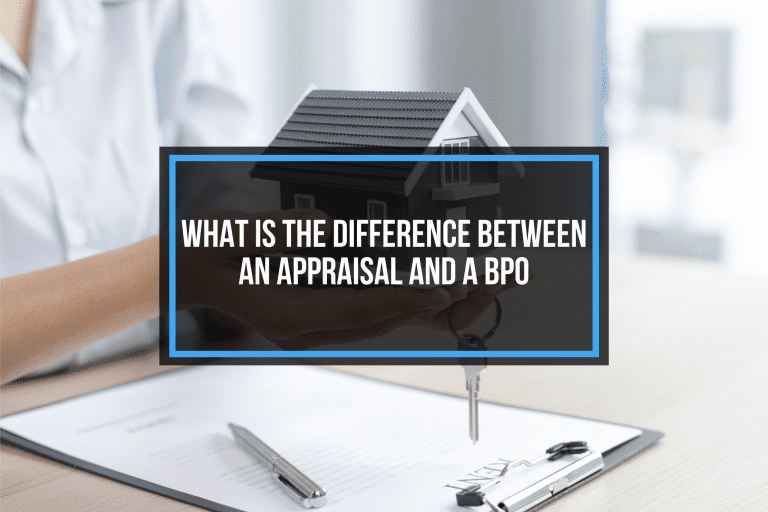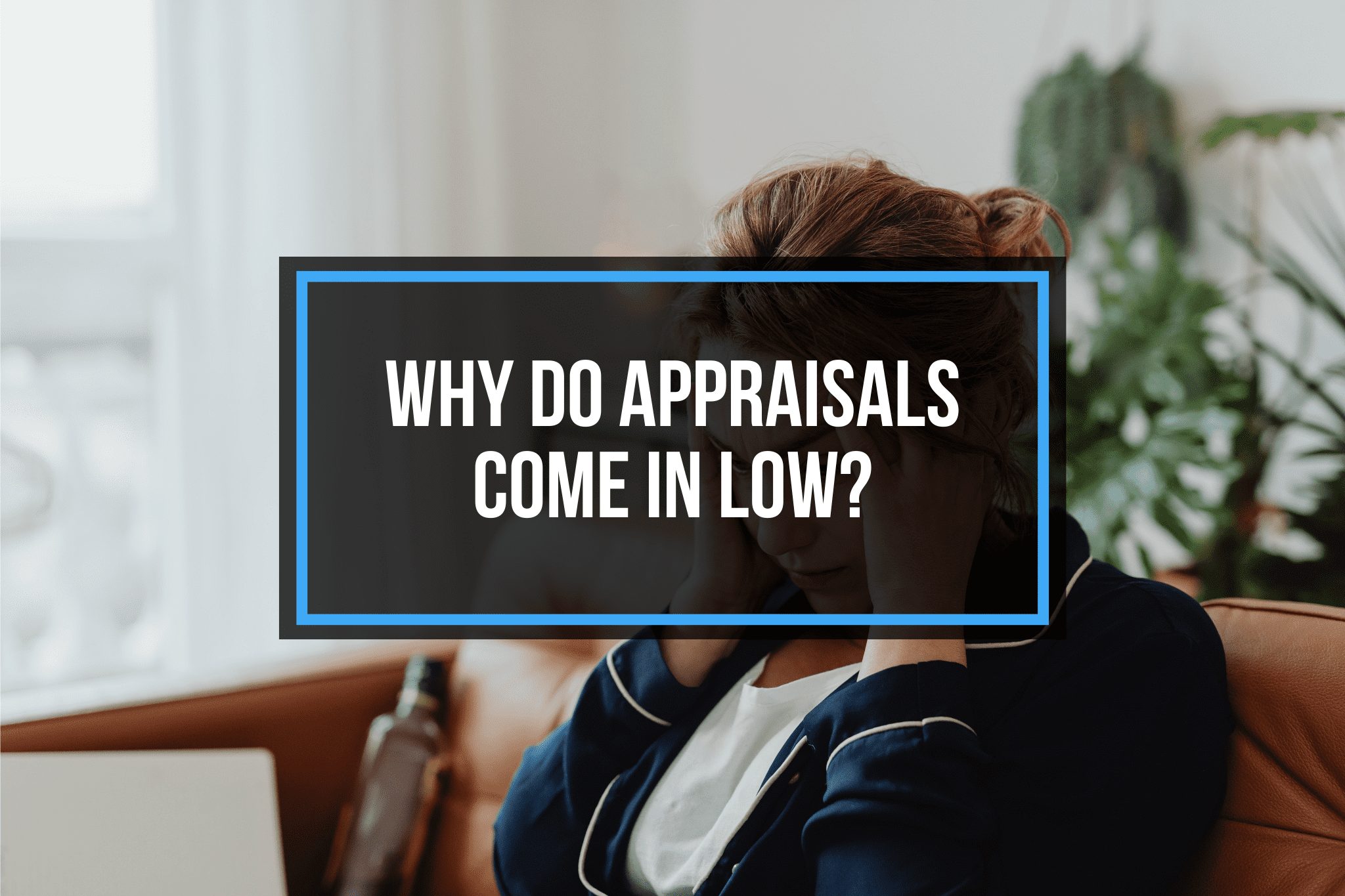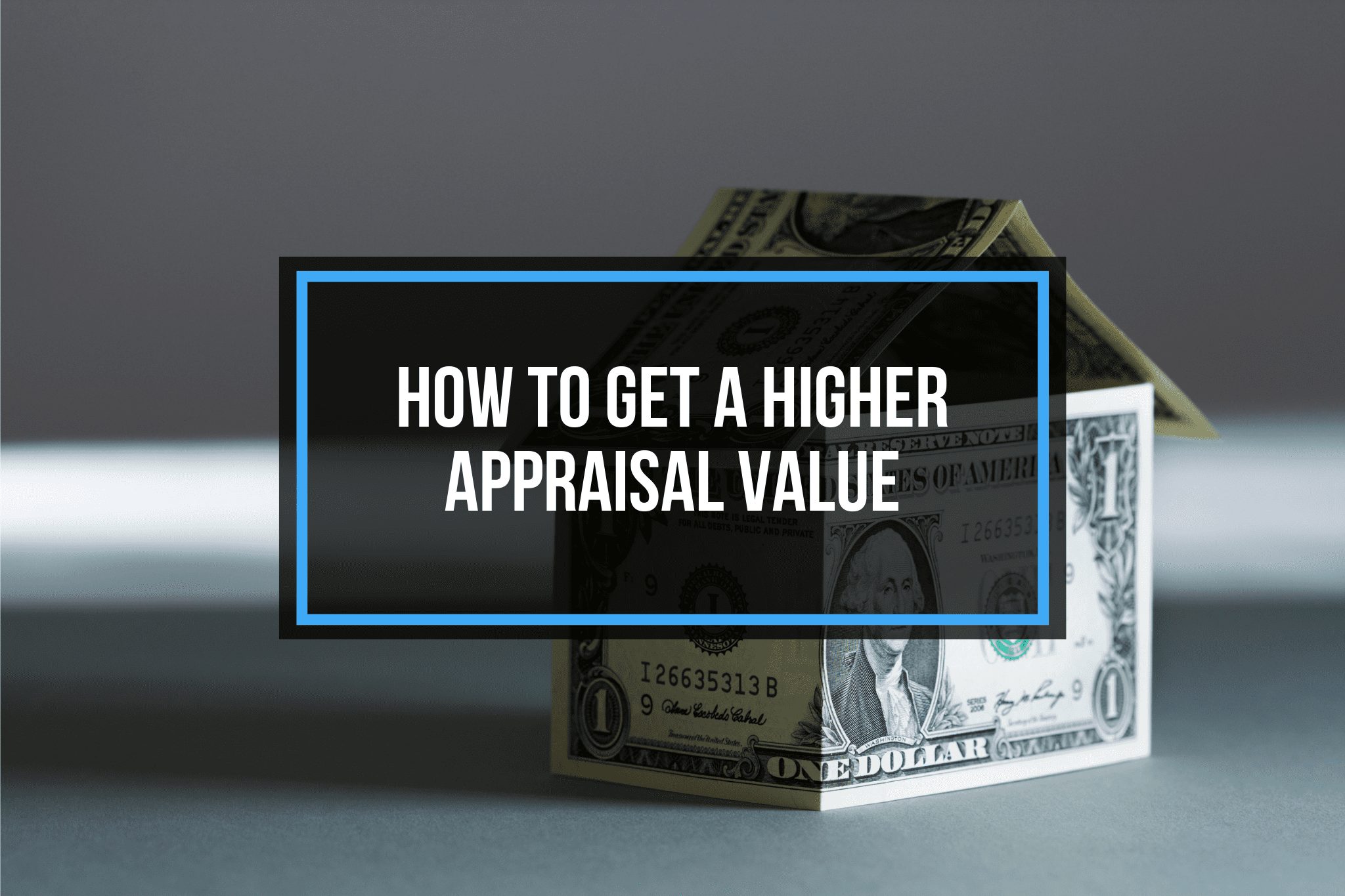What's The Difference Between An Appraisal And A BPO?

There are many various alternative valuation options available if you’re seeking for an alternative to an appraisal, which begs the question, “Whats the difference between an appraisal and a BPO?“
Many are speedier than the typical evaluation because they need to be more thorough.
Some could not even be regarded as appraisals, such as desktop appraisals or real estate AVMs. BPOs, or broker’s price opinions, are another example that fits this description.
Definition
A broker’s price opinion (BPO) is a valuation of a property that is prepared by a licensed real estate broker or agent. A BPO is typically used when an accurate appraisal is not required or when the cost of an appraisal is not justified.
A BPO is based on the broker’s analysis of recent sales of comparable properties in the area, as well as other factors that may affect the value of the property, such as location, condition, and market trends.
The BPO may be used for various purposes, such as establishing a list price for a property that is being offered for sale, determining the value of a property for insurance or mortgage purposes, or assessing the value of a property for tax or estate planning purposes.
With a BPO, a real estate agent provides you with an estimated value and recommended list price. They are frequently useful in determining an estimated property worth before a sale. BPOs provide a high-level overview of a property and the surrounding market because they are only a fast estimate. They offer less information than a valuation or alternative valuation product would, etc.
Let’s compare BPOs and appraisals and discuss what lenders need to know.
What Distinguishes a BPO from an Appraisal?
The main distinction between a BPO and an appraisal is that an appraisal fulfills both the client’s request and the appraisal firm’s legal and USPAP-required obligations.
Typically carried out by a real estate broker or agent, a BPO is exempt from USPAP or state appraisal regulations. A licensed or certified appraiser can do a BPO, but under USPAP and state law, it becomes an appraisal. Most appraisers will turn out BPO jobs because of the limited scope and potential legal repercussions.
How, then, is a BPO done, being such a high-level report? The broker or agent will often drive to the target neighborhood and do an exterior assessment of the property. They might also have access to the interior, depending on the circumstances. The broker or agent submits their analysis via the BPO form after combining their inspection observations with data, typically from the MLS or public records. This is similar to what an appraiser performs, except that appraisers are accountable to the law.
BPOs are frequently used to estimate the worth of foreclosed houses because they don’t necessitate speaking with the property owners. Foreclosed property market value and list prices are frequently estimated using BPOs.
An internal inspection may occasionally be part of a BPO, which results in a more thorough report. In these cases, the value will also consider the condition of internal features such as the walls, flooring, countertops, sinks, and air conditioning and heating systems.
BPOs are often finished relatively quickly, which may be a benefit if you want to acquire information on the valuation of a property within a shorter time frame, whether an internal inspection is conducted or there is just a drive-by.
Let’s now quickly review assessments. You get a thorough report containing information from the appraiser’s interior and exterior inspection when you request a full property appraisal.
The appraiser also looks for elements that might affect the subject’s appeal and marketability on the subject site, adjacent sites, subject neighborhood, and overall market region. The appraiser changes the comparable sales and listings once all the data has been evaluated, taking into account the anticipated responses of a typical buyer for the subject property.
BPOs consider many of the same variables as an assessment and may or may not make modifications. According to the legislation, the appraiser must be an impartial third party with no connection to the property. The appraiser must also be able to back up all the assertions made in the appraisal, and they must maintain a thorough work file as required by law.
However, a realtor who does a BPO is exempt from these legal requirements. As a result, while performing the appraisal, they can also have a potential financial interest in the property.

How do I choose between a BPO and an Appraisal?
Consider what you want to learn about the property if you need help deciding what appraisal product to use. Since a full appraisal is a thorough investigation, it takes longer and costs more than a BPO. There are various circumstances where an appraisal is advised and occasionally necessary, aside from a mortgage transaction where the lender is required to order the appraisal. Examples include contesting property taxes, a divorce, or probate.
For some circumstances, a BPO offers a quicker, more affordable solution. An experienced local realtor and BPO can be your best choice if you’re thinking about selling your house and want a general estimate of what the list price and potential sale price would be.
Realtors and appraisers typically approach situations differently, and there are times when an appraisal and a BPO may be the preferable option. Think about the situation that follows.
The area is a retirement neighborhood, and most homes feature master suites on the first level. Despite having a master bedroom on the second story, you intend to put the house on the market. A realtor will be able to identify that potential residents of this neighborhood won’t be enthusiastic about using stairs, and they will know how to create the best marketing plan for the house. The appraiser can more thoroughly examine the influence on marketability.
The worst thing you can do if you’re still unsure is spent time and money on appraisals and BPOs that might not give you the information you need. A lender appraisal specialist might be useful to work with.
Our team at Marketwise focuses on providing top-notch service, quick turnaround, and knowledgeable counsel. Get in touch with us immediately to learn more about our services and how they relate to your properties if you’re interested in learning more about which alternative valuation solution is best for you.
Need BPO's or Appraisals? Get In Touch Today!

If you would like to download our ebook, simply sign up for our newsletter by filling out the form below.

- Marketwise Valuation Services, Inc.
- 7100 Biscayne Blvd, Suite 207
- (888) 602-9299
- appraisals@marketwisevaluation.com
- www.marketwisevaluation.com


